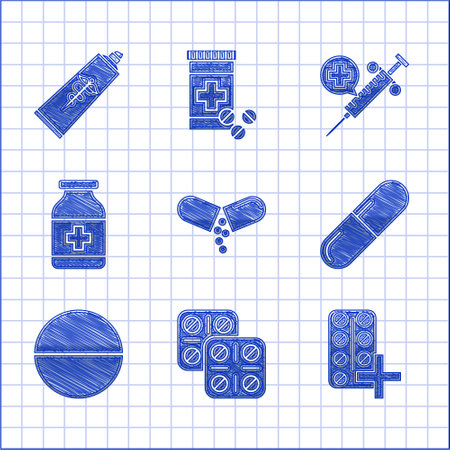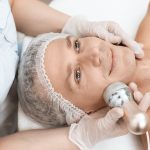1. The Link Between Sleep and Acne
Getting enough sleep is essential for overall health, but did you know that poor sleep can also contribute to acne breakouts? When you don’t get enough rest, your body experiences changes in hormone levels, increased inflammation, and higher stress responses—all of which can trigger or worsen acne.
How Sleep Deprivation Affects Hormones
Your body regulates important hormones during sleep, including cortisol and insulin. When you’re sleep-deprived:
- Cortisol Levels Rise: High cortisol levels increase oil production in your skin, leading to clogged pores and breakouts.
- Insulin Resistance Increases: Poor sleep affects how your body processes sugar, which can lead to more inflammation and acne flare-ups.
- Melatonin Production Drops: Melatonin helps protect the skin from oxidative stress. Less sleep means lower melatonin levels, making your skin more vulnerable to damage.
The Role of Inflammation in Acne
Inflammation plays a key role in acne development. When you don’t get enough rest, your immune system becomes imbalanced, leading to chronic inflammation. This can cause redness, swelling, and more severe breakouts.
Comparison of Well-Rested vs. Sleep-Deprived Skin
| Factor | Well-Rested Skin | Sleep-Deprived Skin |
|---|---|---|
| Oil Production | Balanced | Increased (leading to clogged pores) |
| Inflammation Levels | Lower | Higher (causing more breakouts) |
| Skin Repair & Regeneration | Efficient overnight repair | Inefficient repair, leading to dull and irritated skin |
| Cortisol Levels | Normal | Elevated (triggers acne) |
The Connection Between Stress and Breakouts
Lack of sleep increases stress levels, which directly impacts your skin. When youre stressed:
- Your body releases more cortisol, leading to more oil production.
- You may experience slower wound healing, meaning existing acne takes longer to heal.
- Your immune system weakens, making it harder for your skin to fight bacteria that cause acne.
Tips for Better Sleep and Clearer Skin
- Aim for 7-9 hours of quality sleep each night.
- Create a relaxing bedtime routine to reduce stress before sleeping.
- Avoid screens at least 30 minutes before bed to improve melatonin production.
- Maintain a consistent sleep schedule to support hormonal balance.
- Use clean pillowcases to prevent bacteria buildup on your skin while you sleep.
If you want clearer skin, prioritizing good sleep habits is just as important as using the right skincare products. By improving your sleep quality, you can help regulate hormones, reduce inflammation, and minimize acne breakouts.
2. Stress and Its Role in Skin Health
Stress is a major factor that impacts skin health, often triggering or worsening acne breakouts. When youre under stress—whether from poor sleep, work pressure, or unhealthy lifestyle choices—your body responds by releasing stress hormones like cortisol. These hormonal changes can lead to increased oil production, clogged pores, and inflammation, which all contribute to acne.
How Stress Hormones Affect Your Skin
When youre stressed, your bodys natural balance shifts, causing changes that negatively impact your skin. Below are some of the ways stress hormones influence acne:
| Effect of Stress | Impact on Skin |
|---|---|
| Increased Cortisol Levels | Triggers oil production, leading to clogged pores and breakouts. |
| Inflammatory Response | Makes existing acne worse by increasing redness and swelling. |
| Poor Sleep Quality | Affects skin repair and regeneration, making acne harder to heal. |
| Weakened Immune System | Lowers the skin’s ability to fight bacteria that cause breakouts. |
Lifestyle Habits That Increase Stress-Related Acne
Certain daily habits can worsen stress and its effects on your skin. If you often experience breakouts, consider adjusting these lifestyle factors:
- Lack of Sleep: Poor sleep increases stress levels and disrupts hormone regulation.
- Poor Diet Choices: High sugar and processed foods can trigger inflammation and worsen acne.
- Sedentary Lifestyle: Lack of exercise reduces circulation, making it harder for your skin to heal.
- Caffeine and Alcohol Consumption: These substances can increase dehydration and stress hormone levels.
- No Stress Management Routine: Without healthy coping mechanisms, stress continues to build up and affect your skin.
Tips to Reduce Stress for Healthier Skin
If stress is affecting your skin, making small lifestyle changes can help. Here are some simple ways to reduce stress and improve your skins condition:
- Create a Relaxing Nighttime Routine: A consistent sleep schedule helps regulate hormones and reduce breakouts.
- Add Exercise to Your Daily Routine: Physical activity lowers stress hormones and improves circulation for healthier skin.
- Meditation & Deep Breathing: Practicing mindfulness techniques can lower cortisol levels and prevent acne flare-ups.
- Energize with Nutrient-Rich Foods: Eating whole foods rich in vitamins and antioxidants supports balanced hormones.
- Avoid Excessive Caffeine & Sugar: Reducing stimulants prevents unnecessary spikes in stress hormones.
The Connection Between Mind & Skin
Your mind and body are closely connected—when youre overwhelmed with stress, your skin shows it. By understanding how chronic stress affects your hormones and adopting healthier habits, you can take control of both your mental well-being and your complexion.

3. Diet and Acne: What You Eat Matters
What you put on your plate can have a significant impact on your skin. While genetics and hormones play a role in acne, diet is another crucial factor that influences breakouts. Certain foods can trigger inflammation, increase oil production, and lead to clogged pores. Let’s take a closer look at how high-glycemic foods, dairy, and processed foods affect skin health.
High-Glycemic Foods and Acne
Foods with a high glycemic index (GI) cause a rapid spike in blood sugar levels, leading to increased insulin production. This can stimulate oil glands and contribute to acne flare-ups.
Common High-Glycemic Foods:
- White bread
- Sugary cereals
- Soda and sweetened beverages
- Pastries and desserts
- Pasta made from white flour
Studies suggest that switching to low-glycemic foods, such as whole grains, legumes, and fresh vegetables, may help reduce acne severity.
Dairy and Its Link to Acne
Dairy products, particularly milk, have been associated with acne breakouts. This could be due to the hormones present in milk or its ability to increase insulin-like growth factor-1 (IGF-1), which may contribute to clogged pores.
Types of Dairy That May Worsen Acne:
| Dairy Product | Potential Effect on Skin |
|---|---|
| Whole Milk | May increase inflammation and oil production |
| Cheese | Contains hormones that might trigger breakouts |
| Ice Cream | High in sugar and dairy, both linked to acne |
| Flavored Yogurt | Often contains added sugars that worsen acne |
Processed Foods and Skin Health
Highly processed foods are often packed with unhealthy fats, preservatives, and artificial additives that may promote inflammation in the body. Chronic inflammation can aggravate acne by increasing redness and swelling.
Avoid These Processed Foods for Clearer Skin:
- Fast food (burgers, fries, fried chicken)
- Packed snacks (chips, crackers, candy bars)
- Processed meats (hot dogs, bacon, deli meats)
- Sugary drinks (sports drinks, flavored lattes)
Healthier Dietary Choices for Acne Prevention
If you’re looking to improve your skin through diet, focus on whole, nutrient-rich foods that support skin health. Here are some better alternatives:
| Food Group | Skin-Friendly Options |
|---|---|
| Fruits & Vegetables | Berries, spinach, kale, carrots |
| Healthy Fats | Avocados, walnuts, salmon |
| Whole Grains | Quinoa, brown rice, oats |
| Dairy Alternatives | Almond milk, coconut yogurt |
Your diet plays a key role in maintaining clear skin. By making mindful food choices and reducing high-glycemic foods, dairy, and processed items from your meals, you may notice an improvement in your complexion over time.
4. Exercise, Sweat, and Skin Health
Regular physical activity is great for your overall health, but did you know it also plays a crucial role in maintaining clear skin? Exercise improves blood circulation, which helps deliver oxygen and nutrients to your skin while flushing out toxins. However, without proper post-workout skincare, sweat and bacteria can contribute to acne breakouts.
How Exercise Benefits Your Skin
When you work out, your heart rate increases, promoting better blood flow. This enhanced circulation helps nourish your skin cells and remove waste products more efficiently. Here are some key benefits of exercise for skin health:
| Benefit | Description |
|---|---|
| Improved Circulation | Boosts oxygen and nutrient delivery to skin cells. |
| Toxin Removal | Sweating helps flush out impurities from pores. |
| Reduced Stress Levels | Lowers cortisol production, which can reduce acne flare-ups. |
| Enhanced Collagen Production | Aids in maintaining firm and youthful-looking skin. |
The Connection Between Sweat and Acne
Sweating during exercise is natural and beneficial for detoxifying the body. However, if sweat mixes with oil, dirt, and bacteria on your skin, it can clog pores and trigger breakouts. Understanding how to manage sweat properly can help prevent post-workout acne.
Tips for Preventing Post-Workout Breakouts
- Cleansing Before and After: Wash your face before working out to remove makeup or excess oil. After exercising, cleanse your skin immediately to remove sweat and bacteria.
- Avoid Touching Your Face: Hands carry bacteria that can transfer to your skin during workouts.
- Use a Clean Towel: Pat (don’t rub) sweat off with a clean towel to avoid irritation.
- Wear Breathable Fabrics: Opt for moisture-wicking materials to minimize sweat buildup on your skin.
- Tie Back Your Hair: Keep hair away from your face to prevent oil transfer.
- Mild Exfoliation: Use a gentle exfoliant once or twice a week to prevent clogged pores caused by excess sweat and dead skin cells.
The Best Skincare Routine After Exercising
A good post-workout skincare routine ensures that sweat doesn’t lead to breakouts. Follow these steps after every workout:
- Cleansing: Use a gentle cleanser suited for your skin type to remove sweat and impurities.
- Toning: Apply a lightweight toner to balance your skin’s pH levels.
- Moisturizing: Hydrate with an oil-free moisturizer to keep your skin balanced.
- Sunscreen (if outdoors): If you’ve exercised outside, apply sunscreen to protect against UV damage.
By combining regular exercise with proper skincare habits, you can enjoy the benefits of physical activity while keeping your skin clear and healthy!
5. Developing a Skin-Friendly Lifestyle
Creating a lifestyle that supports healthy skin can significantly reduce acne breakouts. By focusing on sleep hygiene, stress management, a balanced diet, and an effective skincare routine, you can improve your skin’s overall health and minimize breakouts.
Prioritizing Quality Sleep
Your skin repairs itself while you sleep, making good sleep hygiene essential for preventing acne. Poor sleep can increase stress hormones, leading to more breakouts. Follow these tips to improve your sleep quality:
| Sleep Habit | Benefit |
|---|---|
| Maintain a consistent sleep schedule | Regulates hormone levels and reduces stress |
| Avoid screens before bed | Reduces blue light exposure that disrupts melatonin production |
| Create a relaxing bedtime routine | Helps the body wind down and prepare for restful sleep |
| Keep your bedroom cool and dark | Promotes deeper, uninterrupted sleep |
Managing Stress Effectively
Stress triggers hormonal changes that can worsen acne. Managing stress through relaxation techniques can help maintain clear skin. Consider incorporating these habits into your daily routine:
- Meditation & Deep Breathing: Reduces cortisol levels, which can decrease inflammation.
- Regular Exercise: Helps regulate hormones and improves blood circulation to the skin.
- Adequate Downtime: Engaging in hobbies or social activities can lower stress levels.
- Avoiding Overcommitment: Prioritizing tasks and setting realistic goals can prevent burnout.
Nourishing Your Skin with a Balanced Diet
The foods you eat play a crucial role in skin health. A diet rich in whole foods can help reduce acne flare-ups. Here are some dietary guidelines to follow:
| Foods to Include | Benefits for Skin |
|---|---|
| Leafy greens & colorful vegetables | Packed with antioxidants that reduce inflammation |
| Berries & citrus fruits | High in vitamin C, which supports collagen production |
| Nuts & seeds | Rich in zinc and omega-3s to combat acne-causing bacteria |
| Whole grains & fiber-rich foods | Aid digestion and prevent blood sugar spikes that trigger breakouts |
| Foods to Limit | Potential Acne Effects |
| Sugary snacks & processed foods | Cause insulin spikes that may lead to increased oil production |
| Dairy products (especially skim milk) | Might contribute to hormonal imbalances affecting the skin |
| Fast food & fried items | Poor-quality fats can increase inflammation in the body |
Cultivating a Consistent Skincare Routine
A proper skincare regimen helps keep pores clear and prevents new acne from forming. Follow these basic steps for an effective skincare routine:
Cleansing Twice Daily
- Select a gentle cleanser suited for your skin type to remove dirt and excess oil.
- Avoid harsh scrubbing as it may irritate the skin and worsen acne.
- If using makeup, opt for non-comedogenic products to prevent clogged pores.
Moisturizing & Hydration
- Moisutrizing is essential even for oily skin—look for lightweight, oil-free formulas.
- Adequate water intake helps flush out toxins and keeps skin hydrated from within.
Sunscreen Protection
- Sunscreen prevents hyperpigmentation from acne scars.
- Select a broad-spectrum SPF 30+ sunscreen suitable for acne-prone skin.
- Avoid heavy sunscreens with pore-clogging ingredients like coconut oil.
Treating Acne with Targeted Ingredients
- Benzoyl peroxide: Kills acne-causing bacteria.
- Salicylic acid: Exfoliates inside pores to prevent clogging.
- Niacinamide: Reduces redness and strengthens the skin barrier.
- If persistent acne occurs, consult a dermatologist for prescription treatments.
Lifestyle choices have a significant impact on acne breakouts. By improving sleep habits, managing stress, maintaining a nutritious diet, and following a consistent skincare routine, you can support clearer, healthier skin over time.


